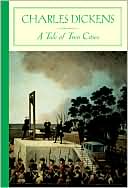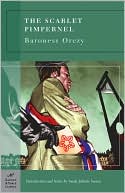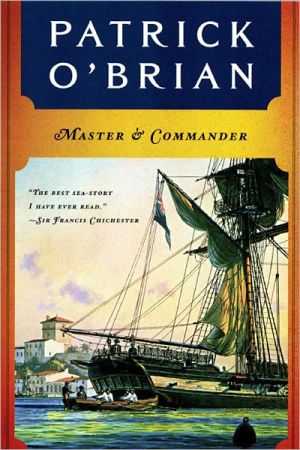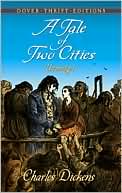Sharpe's Fury (Sharpe Series #11)
Be prepared for scenes of great action & heroics\ "I had a word with Sergeant Nolan, so I did, and said you weren't entirely bad unless you were crossed, and then you were a proper devil. And I told him you had an Irish father, which might be true, might it not?"\ "So I'm one of you now, am I?" Sharpe asked, amused.\ "Oh no, sir, you're not handsome enough."\ Richard Sharpe\ Soldier, hero, rogue—the man you always want on your side. Born in poverty, he joined the army to escape jail and...
Search in google:
Richard Sharpe, the former private in His Majesty's army who now commands a company of riflemen, finds himself fighting his old enemies, the French, in 1811. Sharpe has been sent by Wellington on a mission to Cádiz, now the capital of Spain, to rescue the British ambassador -- who happens to be Wellington's brother -- from a spot of undiplomatic trouble. The city has been blockaded by the French but is supported by the British from the sea. It contains a rare mix of pro- and anti-British citizens, diplomats, courtiers, adventurers, and spies. Sharpe's mission -- complicated, undercover, and political -- turns out to be completely different from the one on which he was sent. It brings him through the besieging enemy army to triumph in the Battle of Barrosa, where the British, deserted by their allies, defeat an overwhelmingly stronger French force.Publishers WeeklyCapt. Richard Sharpe, upstart rifleman, performs a sensitive mission for Henry Wellesley, the duke of Wellington's younger brother and special envoy to Spain in Cadiz, in bestseller Cornwell's rousing 21st military historical (after 2005's Sharpe's Escape). A secret cabal of Spaniards who favor a rapprochement with France threatens the alliance between England and Spain in the fight against Bonaparte. The conspirators, who include a murderous priest, Fr. Salvador Montseny, have stolen some unfortunate love letters Wellesley wrote to his prostitute amour, Caterina Blazquez, and plan to use them to embarrass the British. It's up to Sharpe to recover the letters and save the alliance. Meanwhile, British troops, with little help from the Spanish army, maneuver to lift the French siege of Cadiz. As usual, Sharpe must contend with a snobbish superior officer, Brigadier Moon, who gets his just reward in a delicious surprise twist at battle's end. One hopes the nasty Father Montseny, who disappears from the action too soon, will return to bedevil Sharpe in future installments. (Sept.) Copyright 2006 Reed Business Information.
Sharpe's Fury LP\ \ By Bernard Cornwell \ HarperCollins Publishers, Inc.\ Copyright © 2006 Bernard Cornwell\ All right reserved.\ ISBN: 0061233048 \ \ \ Chapter One\ You were never far from the sea in Cádiz. The smell of it was always there, almost as powerful as the stink of sewage. On the city's southern side, when the wind was high and from the south, the waves would shatter on the sea wall and spray would rattle on shuttered windows. After the battle of Trafalgar storms had battered the city for a week and the winds had carried the sea spray to the cathedral and torn down scaffolding about its unfinished dome. Waves had besieged Cádiz and pieces of broken ship had clattered on the stones, and then the corpses had come. But that had been almost six years ago and now Spain fought on the same side as Britain, though Cádiz was all that was left of Spain. The rest of the country was either ruled by France or had no government at all. Guerrilleros haunted the hills, poverty ruled the streets, and Spain was sullen. February 1811. Nighttime. Another storm beat at the city and monstrous waves shattered white against the sea wall. In the dark the watching man could see the explosions of foam and they reminded him of the powder smoke blasted from cannons. There was the same uncertainty about the violence. Just when he thought the waves had done their worst, another two or three would explode in sudden bursts, thewhite water would bloom above the wall like smoke, and the spray would be driven by the wind to spatter against the city's white walls like grapeshot.\ The man was a priest. Father Salvador Montseny was dressed in a cassock, a cloak, and a wide black hat that he needed to hold against the wind's buffeting. He was a tall man, in his thirties, a fierce preacher of saturnine good looks, who now waited in the small shelter of an archway. He was a long way from home. Home was in the north where he had grown up as the unloved son of a widower lawyer who had sent Salvador to a church school. He had become a priest because he did not know what else he should be, but now he wished he had been a soldier. He thought he would have been a good soldier, but fate had made him a sailor instead. He had been a chaplain on board a Spanish ship captured at Trafalgar and in the darkness above him the sound of battle crashed again. The sound was the boom and snap of the great canvas sheets that protected the cathedral's half-built dome, but the wind made the huge tarpaulins sound like cannons. The canvas, he knew, had once been the sails of Spain's battle fleet, but after Trafalgar the sails had been stripped from the few ships that had limped home. Father Salvador Montseny had been in England then. Most Spanish prisoners had been put ashore swiftly, but Montseny was chaplain to an admiral and he had accompanied his master to the damp country house in Hampshire where he had watched the rain fall and the snow cover the pastures, and where he had learned to hate.\ And he had also learned patience. He was being patient now. His hat and cloak were soaked through and he was cold, but he did not stir. He just waited. He had a pistol in his belt, but he reckoned the priming powder would be sodden. It did not matter. He had a knife. He touched the hilt, leaned on the wall, saw another wave break at the street's end, saw the spray dash past the dim light from an unshuttered window, and then heard the footsteps.\ A man came running from the Calle Compania. Father Montseny waited, just a dark shadow in dark shadows, and saw the man go to the door opposite. It was unlocked. The man went through and the priest followed fast, pushing the door open as the man tried to close it. "Gracias," Father Montseny said.\ They were in an arched tunnel that led to the courtyard. A lantern flickered from an alcove and the man, seeing that Montseny was a priest, looked relieved. "You live here, Father?" he asked.\ "Last rites," Father Montseny said, shaking water off his cassock.\ "Ah, that poor woman upstairs," the man made the sign of the cross. "It's a dirty night," he said.\ "We've had worse, my son, and this will pass."\ "True," the man said. He went into the courtyard and climbed the stairs to the first-floor balcony. "You're Catalonian, Father?"\ "How did you know?"\ "Your accent, Father." The man took out his key and unlocked his front door and the priest appeared to edge past him toward the steps climbing to the second floor.\ The man opened his door, then pitched forward as Father Montseny suddenly turned and gave him a push. The man sprawled on the floor. He had a knife and tried to draw it, but the priest kicked him hard under the chin. Then the front door swung shut and they were in the dark. Father Montseny knelt on the fallen man's chest and put his own knife at his victim's throat. "Say nothing, my son," he ordered. He felt under the trapped man's wet cloak and found the knife, which he drew and tossed up the passageway. "You will speak," he said, "only when I ask you questions. Your name is Gonzalo Jurado?"\ "Yes." Jurado's voice was scarce above a breath.\ "Do you have the whore's letters?"\ "No," Jurado said, then squealed because Father Montseny's knife had cut through his skin to touch his jawbone.\ "You will be hurt if you lie," the priest said. "Do you have the letters?"\ "I have them, yes!"\ "Then show them to me."\ Father Montseny let Jurado rise. He stayed close as Jurado went into a room that overlooked the street where the priest had waited. Steel struck flint and a candle was lit. Jurado could see his assailant . . .\ \ Continues... \ \ \ \ Excerpted from Sharpe's Fury LP by Bernard Cornwell Copyright © 2006 by Bernard Cornwell. Excerpted by permission.\ All rights reserved. No part of this excerpt may be reproduced or reprinted without permission in writing from the publisher.\ Excerpts are provided by Dial-A-Book Inc. solely for the personal use of visitors to this web site. \ \
\ Wall Street Journal"Immensely entertaining."\ \ \ \ \ Boston Globe"If you love historical drama, then look no further."\ \ \ Publishers WeeklyCapt. Richard Sharpe, upstart rifleman, performs a sensitive mission for Henry Wellesley, the duke of Wellington's younger brother and special envoy to Spain in Cadiz, in bestseller Cornwell's rousing 21st military historical (after 2005's Sharpe's Escape). A secret cabal of Spaniards who favor a rapprochement with France threatens the alliance between England and Spain in the fight against Bonaparte. The conspirators, who include a murderous priest, Fr. Salvador Montseny, have stolen some unfortunate love letters Wellesley wrote to his prostitute amour, Caterina Blazquez, and plan to use them to embarrass the British. It's up to Sharpe to recover the letters and save the alliance. Meanwhile, British troops, with little help from the Spanish army, maneuver to lift the French siege of Cadiz. As usual, Sharpe must contend with a snobbish superior officer, Brigadier Moon, who gets his just reward in a delicious surprise twist at battle's end. One hopes the nasty Father Montseny, who disappears from the action too soon, will return to bedevil Sharpe in future installments. (Sept.) Copyright 2006 Reed Business Information.\ \ \ \ \ Library JournalSharpe (The Last Kingdom) is back, and his fans will be delighted that Cornwell has returned from his medieval hiatus (e.g., Pale Horseman) and has Sharpe once again fighting Napoleon's minions in 1811 Spain. The indiscreet British ambassador to Spain has not only taken a mistress who turns out to be a prostitute, but he has written her incriminating letters implying that England wishes to take over Spain's colonial possessions. Sharpe's job is to get the letters back before Spain again becomes Bonaparte's ally. He faces a treacherous Spanish admiral, a murderous priest, an atrocity-committing French officer, and the utter incompetence of one of his own superior officers. As in the other Sharpe novels, there is a lot of action here, played out in sturdy prose. By count, this is the 21st novel starring Sharpe, and readers will hope for a 22d. (Some will also hope that Cornwell will finally complete his Nathaniel Starbuck series about the Civil War.) Recommended for anybody who likes slam-bang historical fiction.-Robert Conroy, Warren, MI Copyright 2006 Reed Business Information.\ \ \ \ \ Kirkus ReviewsCaptain Richard Sharpe sees action in the battle to keep Cadiz out of the hands of the Corsican Monster. Basing his story again on historic military action, Cornwell continues the long-running Sharpe series (Sharpe's Escape, 2004, etc.) with a side trip away from Portugal to southern Spain, where the British are helping the Spanish hold on to the port of Cadiz, their last scrap of sovereign territory. The Anglo-Spanish alliance is an uneasy one; there are plenty of Spaniards who remember when Britain was the enemy-just a few years before. Many believe the British have far-reaching plans to take over trade with Latin America and some so detest the Redcoats that they are willing to cut a deal with Bonaparte that would put a subservient Spanish monarch on the throne. Among the bitterest anti-Brits is a priest, Father Montseny, who has gained possession of letters that could be used to split the allies. They are love letters from the English ambassador to his Spanish girlfriend, used by Montseny both to blackmail the ambassador, younger brother of Lord Wellington, and to inflame the populace. Montseny intends to alter their content to suggest plans for British treachery against Spain. Sharpe, under the command of the stubborn and inimical Brigadier Moon, has just made a spectacular escape from the French, destroying a critical bridge on his way off the battlefield. Reeling from a last-minute bullet to the brainpan, he becomes involved in the struggle to regain the letters, working alongside some murderously tough Irish soldiers, his trusty Sergeant Harper and a gay diplomatic spy. The business with the letters leads him straight into the crucial battle at Cerro del Puerco, where the greatlyoutnumbered Brits, under a wonderfully heroic Scots general, face the French at the Battle of Barossa while the Spanish enjoy a picnic. The confusion of battle is, unsurprisingly, confusing. But Cornwell has this stuff down cold, so it's great fun even with all the smoke and noise.\ \








